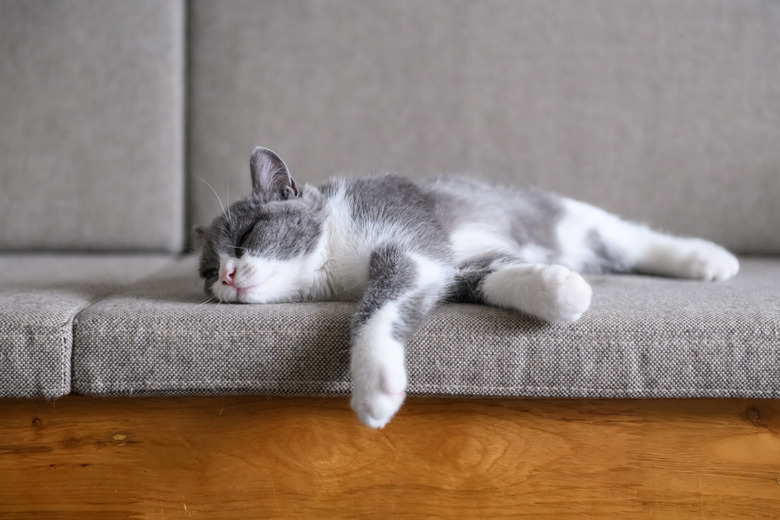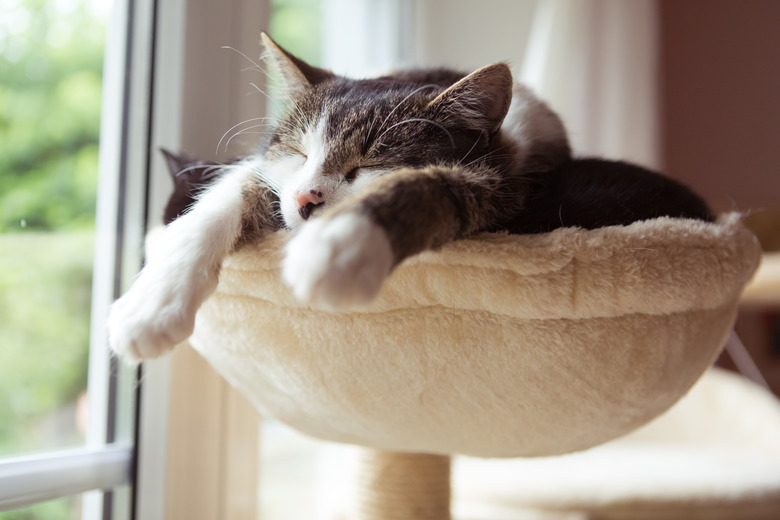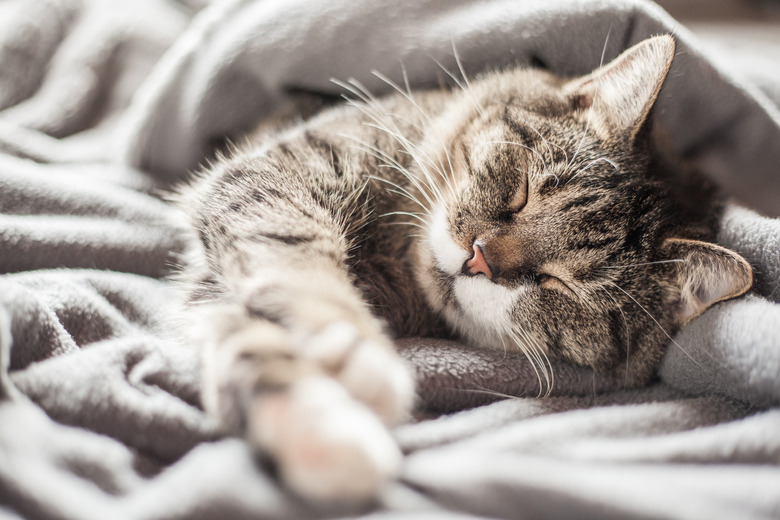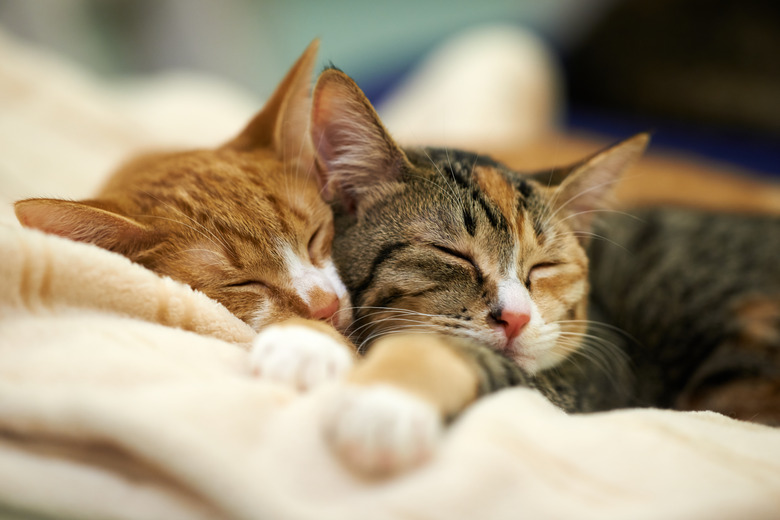Why Do Cats Sleep So Much? Is This Normal?
Ahh, to live the life of a housecat. It seems that all they do is eat, sleep, and then disrupt our sleep in the wee hours of the morning. Cats do sleep a lot, with some getting more than 20 hours of shut-eye in a single day, but it's all for a good reason! Why do cats sleep so much? You can look to their ancestors, the 24-hour clock, and evolution for the answer.
How much do cats sleep in a day?
How much do cats sleep in a day?
According to many sources, domestic cats usually sleep between 12 and 18 hours a day, with many clocking even more than 18 hours of sleep! Cats have a circadian rhythm, or internal biological clock, that keeps their bodies and brains attended to a set sleeping schedule that's healthy for them. During their sleeping phases, cats experience REM, or rapid eye movement periods, just like humans. Cats are able to dream during REM sleep, and you can usually tell when they're in this phase of their sleep cycle by their moving eyes, twitching, or limpness in their bodies. Because adequate sleep is an essential part of maintaining a healthy immune system, indoor cats and outdoor cats with a safe resting space to doze off will get a head start on staying healthy.
Cat sleeping patterns
Cat sleeping patterns
Cats certainly do sleep a lot, but it may feel especially excessive to us because we see most of it during our own waking hours. Cats have what's unofficially known as a witching hour, those few hours around dawn and dusk during which they're the most active. You can thank this biological clock for all of the running, pouncing, and knocking over of things around 4:30 a.m. when you're trying to get your own shut-eye. Cats are awake during these times because that's when their prey is up and about, and due to the low-light glow of these twilight hours to help them see, their deeply ingrained instincts as natural predators kick up, even if they're not outside looking for their next meal.
Because they're up before the crack of dawn, our feline friends do most of their dozing during our daytime hours, and it's not unusual to see them lounging around the house for a long time. They are genetically wired to engage in these long rest periods to conserve energy for their evening and early-morning hunts, regardless of what their daily habits actually look like. Because cats are both predators and prey in the wild, getting long periods of sleep is necessary, but still remaining a bit alert during these prolonged moments of restfulness is crucial for their survival.
Cat naps and feline sleeping habits
Cat naps and feline sleeping habits
Despite sleeping up to 20 hours a day, most cats aren't engaging in deep sleep, at least not for the entire time. Cats are prey animals who typically move solo and without a pack, so they tend to be light sleepers in the event of an attack or other emergency that will require them to bolt quickly! The phrase "cat nap" perfectly describes what a cat's sleep time is like. One study published in Science Direct examined the polycyclic sleep cycles of cats. On average, cats are on 104-minute sleeping schedules, which consist of about 26 minutes of wakefulness, and about 79 minutes of sleep. So, while it may appear to pet parents that their house cats are snoozing for long periods of time, what they're actually doing more closely resembles a string of back-to-back light sleep naps.
The bottom line
The bottom line
Cats sleep a lot—sometimes over 20 hours in a single day! This much rest is important for cats as they are naturally inclined to conserve energy, especially during the day, as their pre-dawn and pre-dusk times are generally spent hunting. Cats generally rest in 104-minute sleeping cycles, with only about 79 minutes of that cycle spent sleeping, and even less time engaging in deep sleep. Despite their nap-like sleeping routines, cats can and do experience REM sleep, which allows them to dream.



